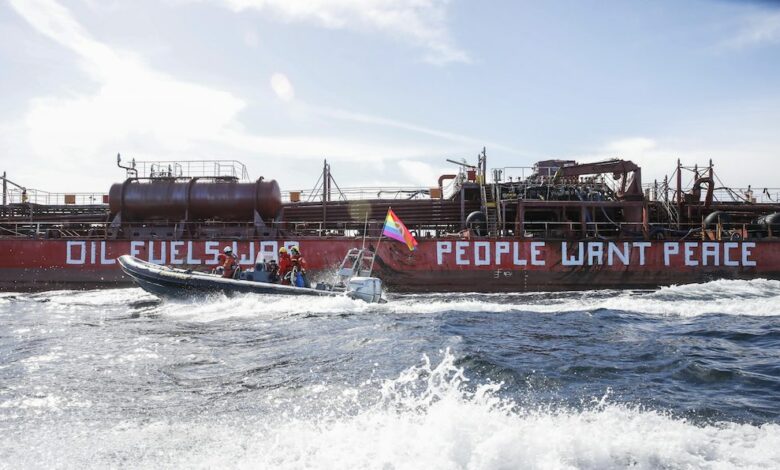Diplomatic campaign underway to crack down on Russian tankers passing through the Baltic

Littoral states around the Baltic are waging a diplomatic campaign to get other countries to back a greater crackdown on Russia’s shadow fleet passing through the region, concerned about the potential for environmental catastrophe with a number of near disasters reported among the ageing fleet of tankers over the past year.
Foreign ministers from the eight Nordic-Baltic grouping of countries met on the Swedish island of Gotland a fortnight ago to discuss how to tackle the Russian fleet.
“The risk of environmental accidents is there every day and especially in the Baltic Sea area it can be very serious if something happens,” commented Elina Valtonen, Finland’s minister for foreign affairs, following the summit in Gotland earlier this month.
Sweden’s foreign minister, Tobias Billström, has been in the UK this week, discussing the matter with his counterpart, David Cameron, and he is determined to bring it up at an EU level as well.
Billström told The Guardian newspaper today: “We will all be affected if there were a major problem arising from a collision or oil leakage from one of these ships, which also in many cases are not seaworthy, or very close to not being seaworthy.”
Billström has called for new rules and enforcement mechanisms on the shadow fleet.
Sweden’s Social Democratic Party has also called for the government in Stockholm to push for the EU to act jointly against the risk of environmental disaster that the Russian shadow fleet brings with it.
“We demand that the prime minister push in the EU for a ban on shadow fleet refuelling and transhipment at sea. The government must also investigate the possibilities of reducing the risks together with the E, for example through increased surveillance or strict requirements for pilotage through the Öresund,” the party stated yesterday.
Last Friday, activists from Greenpeace Nordic launched a protest against a bunker vessel accused of fuelling the Russian shadow fleet in open seas off Gotland. The activists approached the vessel (pictured) in two ribs and painted ‘Oil is war – People want peace’ on the side.
“The 125-metre long bunker vessel Zircone operates as a floating gas station, fuelling the shadow fleet,” Greenpeace stated in a release.
“The Russian shadow fleet is a severe threat to our treasured seas and coastlines. In fact, shipping experts call it an accident waiting to happen. We urge the Swedish government to stop allowing the Zircone to operate in the Swedish Exclusive Economic Zone and thereby remove critical infrastructure from the Russian fleet that is financing the war in Ukraine,” said Rolf Lindahl, peace and energy campaigner at Greenpeace Nordic.
Last month, a tanker from Russia’s shadow fleet was involved in a collision near Denmark sparking much debate in the country about a greater crackdown on such ships transiting through the Danish Straits.
Russia’s neighbours around the Baltic are all now members of NATO, something that has caused much concern in Moscow.
“The Baltic Sea becomes a NATO lake,” Krišjānis Kariņš, Latvia’s foreign minister and a self-declared candidate to head NATO, said last month on the accession of Sweden to the defence organisation.
